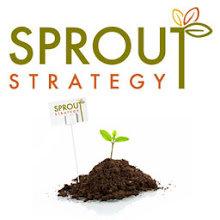With Earth Day just behind us and being green still top of mind, here are a handful of groovy “green” gift ideas, some of which could even make for that perfect Mother’s Day gift – with mom’s day just around the corner.
If you’re interested in sending mom flowers, or perhaps just planting an eco-certified plant or tree in honor of Arbor Day this Friday, check out www.organicbouquet.com for a variety of sustainably grown floral options. As a bonus, if you check out the site this week (before the 30th), you still have time to enter to win a $125 gift certificate.
If you’d prefer to “toast” mom this Mother’s Day, perhaps you’d rather send her a bottle of the award winning Chateau Bousquette Cuvee Prestige from www.theorganicwinecompany.com. And while you’re there, you may just want to sign up for the wine of the month club, where you can indulge in three bottles of organic vino every month.
If mom’s been needing a little extra “flair” in her life, check out the Chica Rosa – Silver clutch at www.ecoist.com, hand crocheted with 200 recycled aluminum pop-tops. It’s sure to be a hit with mom and you may even want to buy a matching one for yourself.
Or, for a more casual handbag option, check out the Planet Green Graphic, Organic Cotton or Animal Planet series handbags on www.envirosax.com. These designer reusable bags will help mom spread the eco-friendly message with style.
And finally, If R&R is where it’s at with mom, why not make her day with the Organic Peaceful Spa Gift Set from www.pristineplanet.com or allow her to wrap herself up in a plush Organic Cotton Thick and Thirsty towel from www.gaiam.com.
We could go on and on with the endless variety of green gift options now available, but these are just a few of our faves definitely worth checking out. We’d love to hear your favorites too, but until then…







